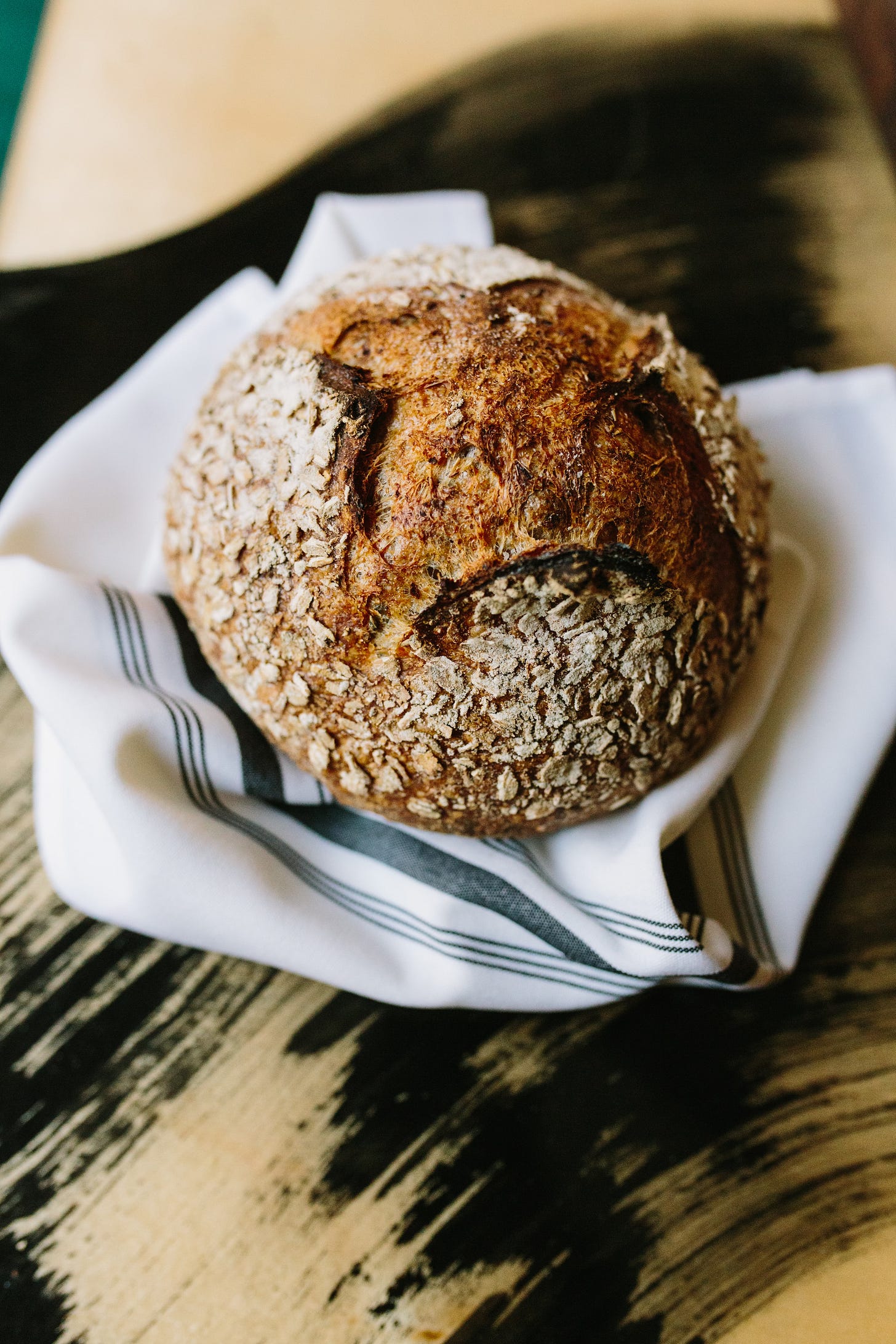This Canadian Company is Closing the Loop on Food Waste—One Bread Loaf at a Time
Voices: An Interview with Dihan Chandra, Spent Goods
Over here at Climate North, we’ve been having conversations with some of the most forward-thinking leaders in the climate space — conversations that are too important and too inspiring to keep within closed circles. So we’re opening the doors and bringing you along. Welcome to Voices. This isn’t just about storytelling; it’s a call to action, a community of ideas, and a reminder that the future we dream of is one we build together.
In our latest interview for Voices, we spoke with Dihan Chandra, founder and CEO of Spent Goods. Dihan, is a visionary social entrepreneur, who initiated his first venture in 2006, Organic Lifestyle, dedicated to advocating non-toxic living with products like organic pillows and mattresses.
His eco-conscious mindset led him to explore climate change reduction solutions, founding Spent Goods after discovering the environmental impact of diverting barley grains used to make beer from disposal and, instead, making new products like sourdoughs, pizzas, and bagels to feed people.
Climate Northerners are encouraged to use coupon code ‘climatenorth’ at organiclifestyle.com and at inside.spentgoods.ca to get 15% off their order placed by the end of March 2025 - free shipping options are available as well.
Tell us about Spent Goods and how it all got started?
The starting story is quite unusual and funny, but I had become curious about whether or not I could use my dog's poop as an energy source to generate power for my house! I thought instead of just picking it up and tossing it in the trash, what if it could be used for an alternative purpose? During my research, I came across solutions that were focused on transforming waste into revenue generators. All of this cemented my belief that there are very practical solutions to reducing waste while simultaneously creating profits, and these solutions are well within our reach.
One night while at my local pub, I thought to myself: What happens to all of the grain used to make beer?
Following my interest, I learned that most spent grains from urban craft breweries end up in landfills, releasing greenhouse gases (GHGs) that contribute to climate change. I knew there had to be a better way. That’s why Spent Goods was born—in an effort to divert those grains and transform them into sourdough, bagels, burger buns, and pizza, feeding people instead.
Every year, approximately 16 million kilos of brewery grains are discarded in Ontario. But what if we used them to make food instead? We could feed every Ontarian 20 loaves of bread every year! This serves as a proof of concept for how Spent Goods can work with the industrial food sector to tackle food loss and move toward a net-zero emissions future.
What is the mission that Spent Goods is on? What problem are you looking to solve?
At Spent Goods, we are driving a cultural shift away from a single-use, discard mentality toward one of resourcefulness and regeneration. We serve as a model for how businesses can transform surplus ingredients—typically discarded—into high-quality, climate-friendly food.
By partnering with multiple businesses, we divert, transform, and distribute nutrient-rich by-products like spent barley grains from craft breweries, creating delicious baked goods while reducing food loss, lowering emissions, and supporting local jobs. Our work proves that sustainability isn’t just possible—it’s profitable, scalable, and essential for the future of food.
⭐️Watch Dihan’s interview with CBC’s Our Toronto.
Why do you believe it’s important for people to be aware of this problem and have access to a business like yours?
Food waste is one of the top three emitters of GHGs. At the same time, what many are unaware of is that it can be used as a primary solution to address climate change and food insecurity.
When people think of food waste, they usually think of residential outputs. While it's a concern, we also need to be aware that the industrial and commercial food sectors actually contribute more food waste than the residential sector.
While residential food waste has few transformation options beyond small-scale composting, the industrial sector can repurpose surplus viable ingredients earlier in the supply chain—before they go to waste. This is where Spent Goods comes in; we help organizations upcycle their surplus into new revenue sources. I like to believe that Spent Goods is a catalyst and offers hope for what the future of local food supply could look like.
What projects and/or products are you excited about expanding on in 2025?
To be direct, current market conditions are unpredictable - currently US tariffs could usher in more local food purchase but we’ve seen this before during the pandemic - the middle class has less disposable income, high cost of living is understandably making it difficult for local businesses to thrive. The optimist in me is hoping to convert more people into local food advocates, so that we build a robust food supply chain where neighbours can feed neighbours. We’re currently talking to a restaurant chain who is keen to ‘de-risk’ their food supply of burger buns that come from the US to Canada. Local food isn’t cheap given our labour and rent costs but I’m hoping that we can find a good balance.
Can you tell us about some recent success stories or breakthroughs in the work you are doing?
We’ve seen incredible success from organizing dinners that encourage community building through food, aka “Supperclubs”. During these events, people work together to create recipes that are then shared amongst everyone participating. We’ve seen how it helps to foster meaningful connection and a sense of contribution. We’ve sponsored elevated dining experiences run by local networkers at CSI, ZestyPlan, Animal Liberation Kitchen and now Climate North.
Given that the story of food waste, its connection to GHGs, and its solutions isn't necessarily a simple one to tell, we’ve been organizing events with like-minded organizations. By offering an ‘IRL’ experience, attendees get a chance to discover new people, ideas, and concepts. But the best part of it is that they leave with a glimpse of being part of a like-minded community usually bumping into or coordinating to meet up at similar events around town.
“Come for the bread, stay for the community”, might be our new tagline :).
What type of impact do you hope that Spent Goods will have on communities, ecosystems, or the planet at large?
To cultivate a community of like-minded individuals choosing a world that prioritizes both people and the planet, we offer products that align with your values—and your belly. Together, we can act locally and inspire globally.
What are common challenges that you encounter in your industry and while growing your business?
Climate change is currently associated with a deep sense of doom and gloom. I’m of the belief that we need to elevate positive stories, supporting businesses like ours for example, whose model is to address the reality that climate change is here and that we need to do something about it. Humanity needs to change our systems and behaviours to shift away from short-term thinking and focus on strategic, multi-generational thinking. Ultimately the planet can survive without us, the truth isn’t the same the other way around.
What motivates you to keep pushing forward in the face of challenges?
I’m motivated by living with no regrets. I want to know that I tried my best despite all the challenges I faced. I really do believe that life is not about the destination, it's the journey. I’ve experienced this first hand and when I reflect on how far I’ve come and who I’ve met along my journey, I realize that is what it’s all about.
There are incredible organizations like CSI and Climate North who have made it especially worthwhile! I know that I’m not alone on this journey, they see and hear me (and I them).
Climate North is all about bringing people together to encourage real time action. How can individuals, communities and/or other organizations support your efforts?
Keep doing what you can - keep building social connections, explore/support solutions that align with your values. Channel your inner Gandhi of “Be the change you want to see in the world”.
If you wanted people to walk away remembering one thing about the work you’re doing, what would you want it to be?
I envision someone at their next social gathering (even if it’s at their niece’s 8 year old birthday party), leaning over to the stranger next to them and asking:
“Have you tried the Beer Bread?”
Which of course is purchased online or from a local grocery store like Big Carrot, Courage Foods or Karma Coop. It’s a great conversation starter!
Where can people stay in-the-know about Spent Goods?
You can find everything about us at https://linktr.ee/spentgoods.











An incredibly inspiring story. Well done CN and Dihan 👏